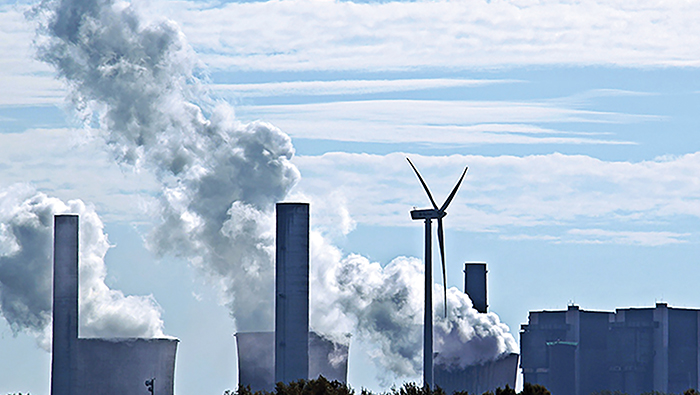
Muscat: Within the Royal care of His Majesty Sultan Haitham bin Tarik on improvement of environment performance and curbing the impacts of climate change, the year 2050 has been set as the deadline for reaching carbon neutrality.
A national plan has been approved to achieve this goal coupled with the establishment of Oman Sustainability Centre to oversee and implement plans and programmes to achieve net zero carbon emissions.
His Majesty the Sultan has also directed cooperation of all units of the administrative apparatus of the state with the departments concerned for the success of the efforts accorded for execution of the aforementioned national plan.
Engr Mohammed bin Khalfan Al Shuaili, Climate Change and Sustainability Manager at PDO and Secretary to the National Plan for Climate Change said the climate neutrality is a contemporary term accompanying activities related to climate change and Paris Agreement and aimed to achieve balance between carbon emissions against the reduction in CO2 emissions.
For instance, if a country’s carbon emissions amounts to 100 million tonnes annually, to achieve the zero-carbon status by a deadline (by 2050 in the case of the Sultanate and several other countries), then such countries should reduce the CO2 emissions by 100 million tonnes, he added.
Speaking on the purpose of setting the year 2050 for achieving this goal, Al Shuaili said that setting the year 2050 for achievement of this goal is established on detailed studies and numerical models set by houses of expertise, mainly the scientific committee within the Paris framework agreement on climate.
Some countries have committed to achieve this zero-carbon goal before 2050 and most countries have committed to achieve it by 2050. Some countries have set 2040 or 2045 as deadline and a few countries have set the year 2060 and only one country has set 2070 for achievement of this zero goal, he added, pointing that a total of 137 countries, some 240 global cities and over 800 companies have committed to achieve the goal by 2050.
Integration and gathering efforts are key to achievement of the zero-carbon goal, he said, adding that sectors should integrate with and serve each other.
For instance, in the field of heavy industries, carbon emissions cannot be reduced in the absence of green energy (green electricity energy in this case) and hydrogen fuel should be available instead of fossil fuel or gas , however, there would be carbon emissions that cannot be reduced or controlled and hence such emissions should be reused in other industries.
Carbon can be retrieved and transported from cement, steel or aluminium factories and reused to enhance oil production in a win-win situation to all parties.
Engr Alaa bin Hassan Al Lawati, who is concerned with the Renewable Energy Sector, said the energy sector is at present the top sector with carbon emissions followed by the transport sector, which means that any change in the strategy of the energy sector is vital for reaching the zero-carbon goal.
“All current projects, whether renewable energy projects (solar energy and wind energy) and other projects, including the green hydrogen projects are no doubt among the key factors for reaching the zero-carbon target,” he added.
He said the majority of Western countries have agreed on the target of reaching zero-carbon emission by 2050.
This commitment was made at the 26th UN Climate Change Conference (COP26) held in Scotland in 2021, he added.
On the possibility of issuance of registrations regulating the carbon production operations and fixing certain percentages/ quantities for carbon emissions, he said there is a laboratory for carbon management and is working on all technical, operational, political, legal and regulatory frameworks along with laws that work on formulating the future policies aimed to achieve the zero-carbon goal by 2050.
These laws and regulations come at present at the world level. For instance, if someone is interested in promoting and marketing some products, there should be a clean energy card or the use of clean energy in generating power in factories.
These issues are under international laws and regulations frameworks which would be followed by local frameworks and regulations for reaching the zero-carbon goal.
On the contribution of individuals in achieving this goal, he said if an individual is interested in the establishment of a building, then such a building should be environment friendly.
The idea of an environment-friendly building would contribute to some extent in reaching the zero-carbon general goal in the Sultanate. Individuals may consider using a more balanced and efficient energy rather than using energy in large quantities, he further added.